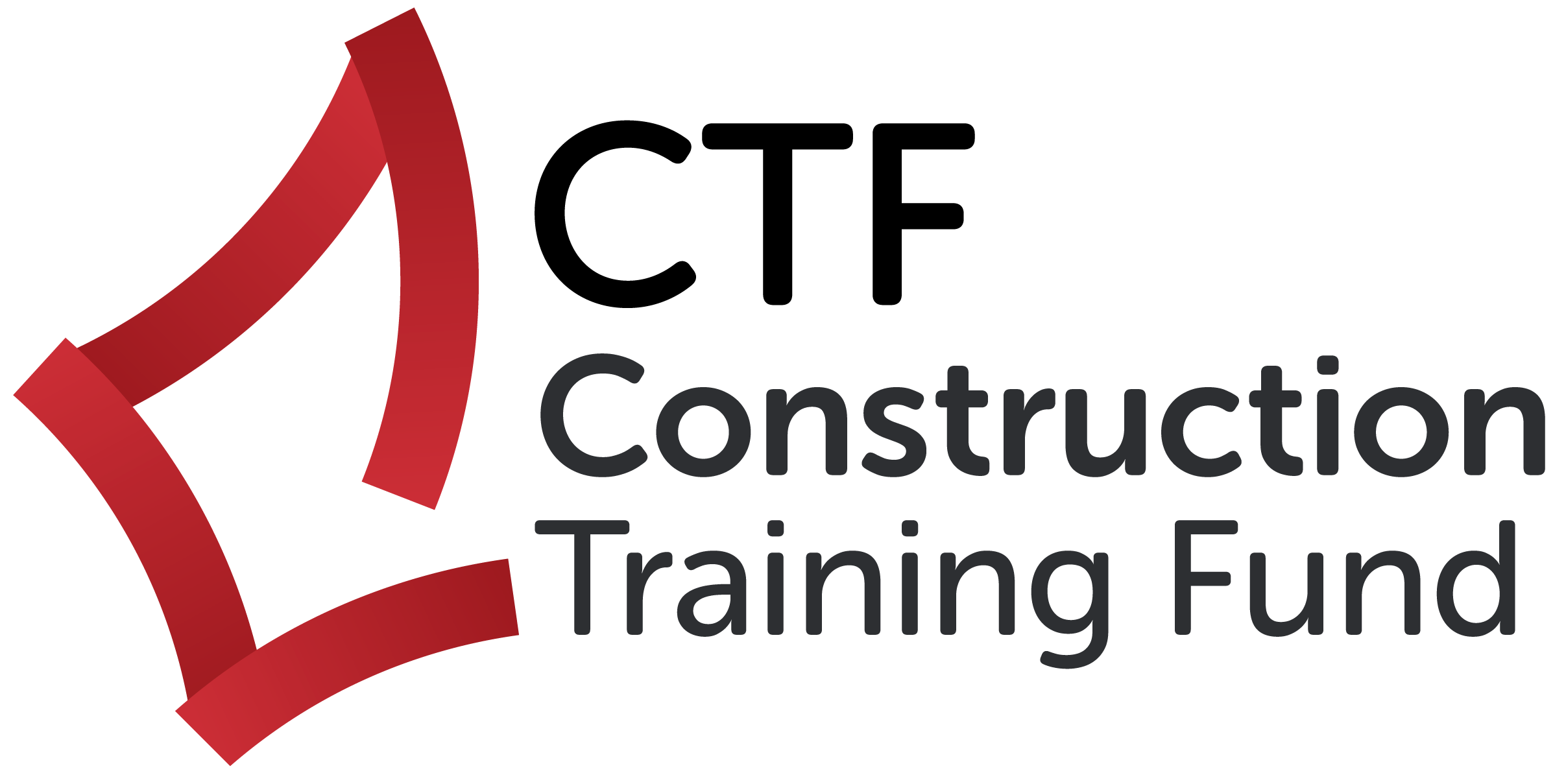The Construction Training Fund (CTF) is a Western Australian Statutory Authority managed by the Building and Construction Industry Training Fund Board (“the Board”).
The CTF administers the Building and Construction Industry Training Fund and Levy Collection Act, 1990 (“the Act”).
Under the Act, the CTF supports training and development of the building and construction workforce in WA through the Building and Construction Industry Training Fund Levy (“the CTF levy”). The CTF levy is applied to all relevant building and construction work undertaken in WA.
WA’s construction industry and the CTF levy
The Act’s definition of ‘construction industry’ and ‘construction work' is taken from the Construction Industry Portable Paid Long Service Leave Act 1985(CIPPLSL Act). This includes construction, erection, installation, reconstruction, re-erection, renovation, alteration, demolition, or maintenance activities undertaken on-site.
The levy applies to all construction work in WA and is 0.2% of the estimated value of construction work above $20,000 (including GST).
The levy applies to:
- Buildings (residential, commercial, industrial, resources sector)
- Non-buildings (civil, engineering, groundworks, fences)
The CTF consults with industry to:
- Assess and review training requirements of the industry’s workforce
- Assess and review skills shortage areas
- Identify innovations in the industry
- Identify trends.
This process helps the Board develop an annual Operational Plan.
Section 8 (1) of the Act notes that the aim of the Operational Plan is “to improve the quality of training and to increase the number of skilled persons in the building and construction industry by the allocation of resources” from the CTF to programs that support:
- Apprenticeships and other forms of entry level training for employment in the industry.
- Supplementary training for those already qualified to work in the industry.
- Training in technology used in the industry and in the occupational health and safety requirements of the industry.
- The recognition, for the purposes of employment in the industry, of persons with existing skills, knowledge and aptitude appropriate to the industry.
- The accreditation of training courses for employment in the industry or that are otherwise appropriate to the industry.
- Innovations in training in the industry and research relating to the levels of competency in, and the training needs of, the industry.
The Act requires the Board’s annual Operational Plan to be endorsed by the Minister.
Apprenticeship and Traineeship Grant for Employers
A range of Certificate II, III and IV qualifications are included in our employer grants program.
To be eligible, a training contract must be lodged with the Department of Training and Workforce Development (DTWD) and have an active status. Other criteria also apply.
Qualifications from the following training packages are eligible:
| Directly related to on-site construction | Requires demonstration of on-site activity |
| CPC Construction, Plumbing and Services | UEE / UET Electrotechnology / Transmission, Distribution and Rail Sector |
| RII* Resources and Infrastructure Industry | MEM Manufacturing and Engineering |
| MSF / LMF Furnishing | |
| UEG Gas Industry |
*Does not include resources operational qualifications.
Upskilling and Short Course Funding
A variety of short courses are recognised for a training subsidy. The course must be delivered by a Registered Training Organisation (RTO) in one of the following areas:
- Construction skills - training required for construction work performed on-site.
- Industry skills - training required for skills that relate to a business that is directly involved in the construction industry and its on-site construction work, e.g., building codes.
- Software skills - training required for skills that relate to a business that is directly involved in the construction industry and its on-site construction work, e.g., MYOB, BIMS.
- Occupational licensing - limited number of courses leading to occupational licensing for individuals involved in on-site construction.
- Occupational health and safety - for workers and companies required to perform roles on-site that specifically relate to construction work, including engineers, architects and project managers who are required to enter live construction sites.
Other CTF Programs
We also provide funding for the following:
- Recognition of Prior Learning (RPL) – for qualifications recognised in the employer grants program.
- Higher qualifications – a limited number of qualifications up to diploma level for individuals involved in on-site construction.
- Pre-apprenticeship completion – for Certificate II qualifications leading into CPC apprenticeships.
- Accommodation support - for apprentices in regional WA required to travel to attend block training.
We also have initiatives to promote construction as a viable and attractive career pathway, including:
- Construction Futures Centre
- VET Scholarship program – for four Certificate II qualifications.
- Try-a-Trade program
How does the CTF determine eligibility for these programs?
CTF policy reflects the purpose of the Act, is informed by the Board’s annual Operational Plan, and in consultation with industry.
CTF programs support workers, individuals and companies that can demonstrate primary and substantial involvement in on-site activities (as determined by the CIPPLSL Act).
Please note:
The potential value of the grant available to eligible employers may be affected if the apprentice/trainee:
- Completes the apprenticeship ahead of the nominated duration of the training contract; or
- Transfers between employers; or
- Does not meet required CTF milestones.
The potential value of the grant may also be affected if an employer is eligible for milestone payments under the State Government’s Jobs and Skills WA Employer Incentive Scheme (EIS).
Continue reading Section 1: The CTF Levy
For further information, please contact us:
- For general queries: info@ctf.wa.gov.au
- For levy-related queries: levycompliance@ctf.wa.gov.au
- (08) 9244 0100
- www.ctf.wa.gov.au
Last modified on:

